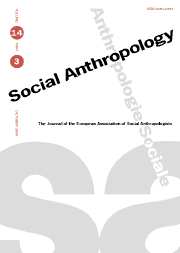No CrossRef data available.
Article contents
Between public assertion and private doubts. A Sepik ritual of healing and reflexivity
Published online by Cambridge University Press: 06 March 2002
Abstract
Belief may refer not only to the content (knowledge, ideas), but also to the believer's attitude (i.e. belief in the dispositional sense – the believer's state of mind). Belief is not necessarily a matter of absolute conviction. It may well call up issues of religious reflexivity. There are degrees of commitment, shifts and changes of attitude. An unsuccessful attempt in a Sepik village to heal a man with joint pains provides here the main example to show how the participants' views about the healing ritual may vary and change. Among the factors identified are differences between public statement and private opinion; the effects of hope and suggestion; variations in attention and state of mind; change with perspective and time; whether to take things as meant literally or metaphorically.
Medical treatment almost anywhere may become a sharp source of doubt and question. Belief in healing has a long history of conviction, the wish to believe, and error. The search to avoid bias and subjective judgement led in biomedicine to the elaboration of a method for evaluating the efficacy of treatment – the randomised controlled clinical trial – which has gained wide acceptance. Despite differences of scope and attitude, some similar issues of authority and persuasion, experience and evidence are involved in the reflexive questioning of both religion and science.
- Type
- Research Article
- Information
- Copyright
- © 2002 European Association of Social Anthropologists




